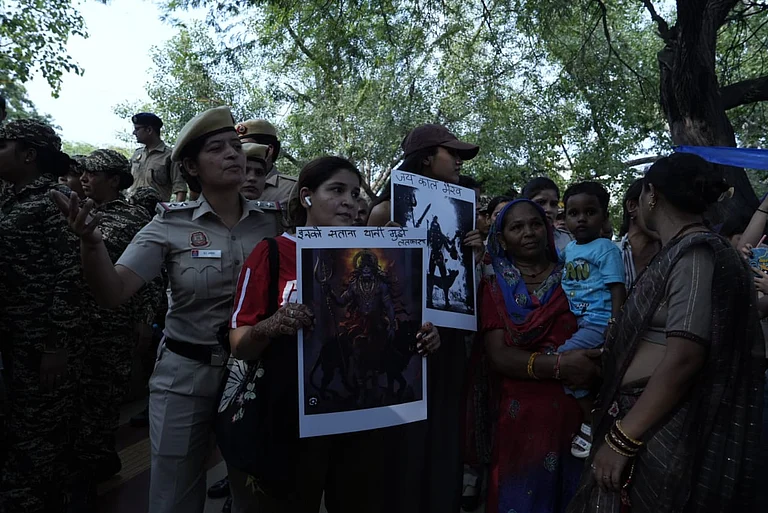August 11: two-judge SC bench directs MCD to impound all strays.
Top court's decision sparks protests across the country.
CJI intervenes day later, sets up three-judge bench on the matter.
SC Reserves Order On Stray Dogs Blanket Ban: What Happens Next
A three-judge bench said it will consider arguments by petitioners and did not deliver an order on the August 11 stray dogs ban in Delhi.
The Supreme Court on Thursday heard petitioners on the issue of managing community dogs in the capital city after its August 11 directive to impound all of Delhi’s canines led to massive protests across the country.
A three-judge bench comprising Justice Nath, Justices Sandeep Mehta and N V Anjaria has reserved its interim order on whether to stay the August 11 directive or not. Earlier, the top court had taken up the issue in suo motu proceedings and ordered relocation of strays from the streets to dedicated shelters.
However, activists have since approached the apex court pointing out that dogs have been rounded up but there are no shelters for them. The petitioners also pointed out that to not release the dogs would be against the ABC rules of India.
The petitioners were represented by a host of senior advocates: Kapil Sibal, Abhishek Manu Singhvi and Sidharth Luthra appeared on behalf of animal rights organisations and individuals in support of community dogs. They sought a stay on the two-judge bench order of August 11.
Appearing on behalf of the government, Solicitor General Tushar Mehta said the government was in favour of impoundment. “Sterilisation does not stop rabies. Even if you immunise, that does not stop the mutilation of children,” Mehta said, adding that the protesters and petitioners were a “vocal minority” against a “silent majority view".
Mehta added that the ABC rules were not adequate to control the population of stray dogs and subsequent dangers. He pleaded with the top court to intervene.
During the hearing, senior advocate Sibal questioned the municipal corporation’s work in sterilisation over the years. He alleged that the MCD had not done its work even though funds were available. The funds are siphoned off, he said and added that such an order cannot be passed suo motu, without any notice. “This is a serious issue; it needs to be heard. Kindly stay the order,” Sibal said.
Justice Nath then pulled up local authorities for not fulfilling their responsibilities. He added that they should have been present in court to take accountability.
Senior advocate AM Singhvi also argued for the petitioners and informed the court that as per data available in Parliament there were no reported cases of dog bites in Delhi this year. He said that “with the best of intentions, the order really puts the horse before the cart”, adding that the directions would not have posed a problem if shelters were already in place. He added that six Supreme Court orders have mandated that the ABC rules should be complied with to ensure humane sterilisation and rehabilitation of dogs.
The 2023 Animal Birth Control (ABC) Rules lay down the rules for the management of India’s stray dog and cat population. The Rules have classified them as “community animals”, and include provisions for community animal feeding. The rules also specified that stray dogs cannot be displaced from their regular place of habitation. The SC order on August 11 said that the ABC rules, though well-intentioned, had failed to meet their mandate. The top court then directed that the strays should not be brought back to their habitat after sterilisation.
The suo motu case was brought up on August 11 by a bench headed by Justice JB Pardiwala. The matter was then re-assigned by Chief Justice of India BR Gavai to the three-judge bench headed by Justice Nath.
